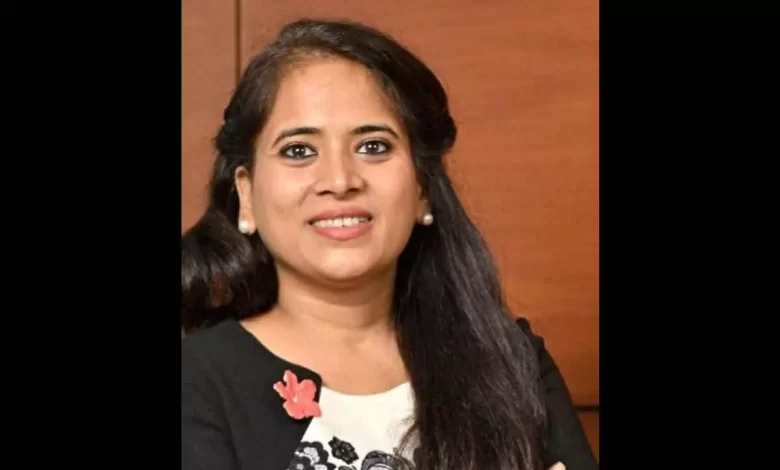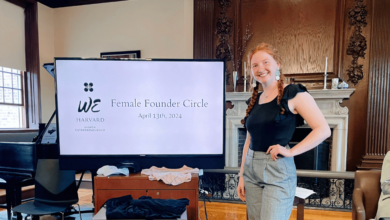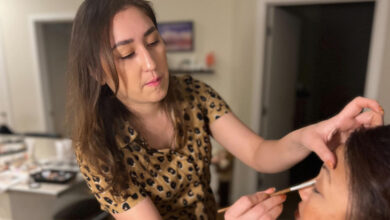How HEN 2.0 Empowering women entrepreneurs to thrive together

Creating a non-judgmental space is of prime importance for the growth of women-led businesses. With this thought of bringing first-time women entrepreneurs onto a prejudice-free common platform to support each other to grow their business, Her Entrepreneurial Network (HEN) took form. Childhood friends from Calcutta, Ruche Mittal, a business owner (Founder-HEN), and Priyanka Changia, a corporate woman, joined hands during Covid to set up HEN 2.0, a go-to space for women entrepreneurs to collaborate, find mentors, and be amidst peer group to talk business. Priyanka Changia, Co-founder, HEN speaks to Bizz Buzz about their vision to provide value to entrepreneurs, and grow the community manifold over the next few years making it a self sustainable community that lives beyond one’s presence or absence
HEN on Facebook with 25k members to HEN 2.0, an online platform… What is the reason behind the transition?
In 2008, Ruche had to move to Bangalore after marriage, and so did her graphic design business. During that period, she realised that she would have to start her business afresh by finding partners and clients. When all were socialising on Orkut, Ruche found her first client and partner there. When social media marketing wasn’t a rage, Ruche understood its power in finding new clients and collaborators. To utilise the power of social media for the benefit of other entrepreneurs like her, Ruche founded HEN on Facebook in 2011. For almost a decade the community thrived on FB growing to 25,000. However, with changing times and social media platforms, keeping the community together was becoming tough. After first wave of Covid, Ruche reached out to me while I was on a sabbatical from my corporate career. As we shared the same passion and vision, I came onboard as the co-founder, to utilise my work experience in research and analytics. Hence, HEN 2.0 was born to bring all the offerings under one umbrella.
How different is HEN from other business networking platforms?
Each business community serves different purpose. Since we are and English speaking community our entrepreneurs fall in the age group of 25 to 45 years, from urban, semi-urban cities, and are comfortable with technology. We have dominant presence in Bangalore, Delhi, Mumbai, Hyderabad, Chennai, Gurugram, Ahmedabad, Calcutta, among others. We have more than 1,000 entrepreneurs as members of HEN, a virtual-first community. And, over 100 members from Hyderabad, who are equally into service and product space. HEN is a platform to discuss day to day challenges, find partners, and experts/mentors to leverage and grow. We do not work with women who are yet in the ideation stage. Interested entrepreneurs can check into our website, there is an application form to fill, our team will review it, understand their business requirement, and later onboard them.
What are the membership plans available?
There are multiple plans – firstly, a one month trial or complementary plan, they can give HEN a try and see what we have got to offer. Second is HEN community for Rs 2,000 plus taxes per year, where they get access to the community platform and WhatsApp marketing group. Third is HEN Network for Rs 5,000 plus taxes, in which they get all of the above along with learning sessions. Lastly is Hen Power Circle for Rs 9,500 plus taxes, where they get visibility opportunities, access to mentorship, international network, and others.
What is the growth Hen is looking forward to achieve?
Community building space is very tricky. Being able to cater and provide value to entrepreneur is our focus right now, not just numbers. We are definitely looking at growing the community manifold in the years to come. The idea is to create a self sustainable community that lives beyond us. All I can say is that the value that HEN brings to women entrepreneurs is immense, and members definitely will benefit by finding a support system here, in their entrepreneurial journey.
What are HEN members gaining from the partnerships that are in place, for example, the one with WeHub?
All the partnerships we have at HEN are focused on bringing in value to our members. Our partnerships work on the perspective of giving. When we started Hen 2.0, we realised that women entrepreneurs in their early stage shy away from making small investments. As everything is a cost to business they pull back from investing in it. For example, women are shy in adapting new technology, and as tech costs money they shy away from it. We bring tools like Canva, Zoho and others for them to try it first, and later adapt if needed. These tech partners let entrepreneurs to understand the tool, see if it is relevant for them, and then implement. Then we have partnerships with fellow communities, such as WeHub. Other partners include WeConnect International, Amazon Saheli, Havas. All of these collaborations get them access to mentoring.
Tell us about the learning sessions being organised for your members…
Learning sessions are geared towards one mission statement that is, businesses should be able to scale up and grow, which usually does not happen overnight as initially they wouldn’t have the structure in place to fulfill big orders. So, our learning sessions are targeted towards helping them build a solid foundation, so that the entrepreneur is ready for that growth. In addition, we talk about various aspects of businesses like sales, marketing, branding, managing customer data, utilising technology, and others, so that they can learn and apply these to build a strong foundation, and then move to step two. There is no handbook to become a successful entrepreneur. It has lot to do with taking the right decision at the right time, investing money where required, taking small risks, building oneself to take bigger risks, and opening doors that otherwise were not accessible.
According to you, what is the teething issue women face as first-time entrepreneurs?
Today, the biggest challenge in India is that when women want to start their business their own family does not take them seriously. The general mindset is that as children have grown up, the mother has some spare time to do something. I am not saying this applies to all but typically a lot of time this mindset is visible in the society. More than 50 per cent of the time these businesses are not even GST or MSME registered. They continue to operate from home as solopreneurs and that is where the limitation lies. With HEN the vision is to empower women entrepreneurs with the tool and technique to structure their business in a proper way, gain encouragement from other seasoned business women, and grow the business ahead with HEN, as a community standing as backbone to support.
What are the other problems that HEN members approach the community for?
Everybody has a product or service in place, most of the time they have taken the extra step of creating a website. The challenge however is sales and, building a strong backend system, the team. Then, how do they keep business relevant, evolve as an entrepreneur and the business to take it to the next level of growth. Next is access to capital and funding. Gone are the startup days where ideas used to get funded. Today investors want to see concrete business matrix, operations, and so on. I am not saying that funding is the only way to growing a business, as businesses that are bootstrapped are also able to flourish, but the intent is to create a space where women-owned businesses are so strong that they are able to pitch to investors, leverage entire startup ecosystem to grow their business.
What is the biggest fear that women entrepreneurs face?
When women start their business the biggest fear they have is failure, and fear of being judged. Some will disagree with me that there are strong women entrepreneurs, but I am not counting them in, and I am not even discounting them. However, the fact of the matter still remains that when women start their business it is usually as side hustle. And, most of the times their family only discourages them from getting GST or MSME registration. HEN is now organising a session on MSME funding, after holding many sessions on why GST, process of GST registration, why and how should it be MSME registered, how to prepare pitch deck for MSME grants, prepare the business eligible for grants. So, all these conversations and horizon open up if they are member of HEN. They not only learn from sessions but also from fellow entrepreneurs.
Why do we get to see women-owned business majorly in few dominant sectors?
I agree with the fact that we see women entrepreneurs in three to four dominant categories, but it comes with skills. Either they are in lifestyle, fashion, food, or accessories because they have natural flare for it. We also see women entrepreneurs with 20 years experience who have started HR consultancy, accounting, wealth managers, these are definitely more sort out categories for women entrepreneurs. When we talk about innovation, I definitely feel innovation is required in business, but the difference lies in when a simplest of idea is executed well.
Women founders in STEM startups…Are the numbers impressive?
For women who are in tech the way forward is to join a company and take up a role. They continue working if they are able to manage their personal life, family and kids. More often not they drop out from these tech roles. In pockets, across metros and smaller towns, the fact is that women shoulder majority of the care giving. In between all of this starting a business requires lot of passion, strength, commitment and support. We have to encourage young girls to dream better and bigger. We have lot of success stories but many more should come.



